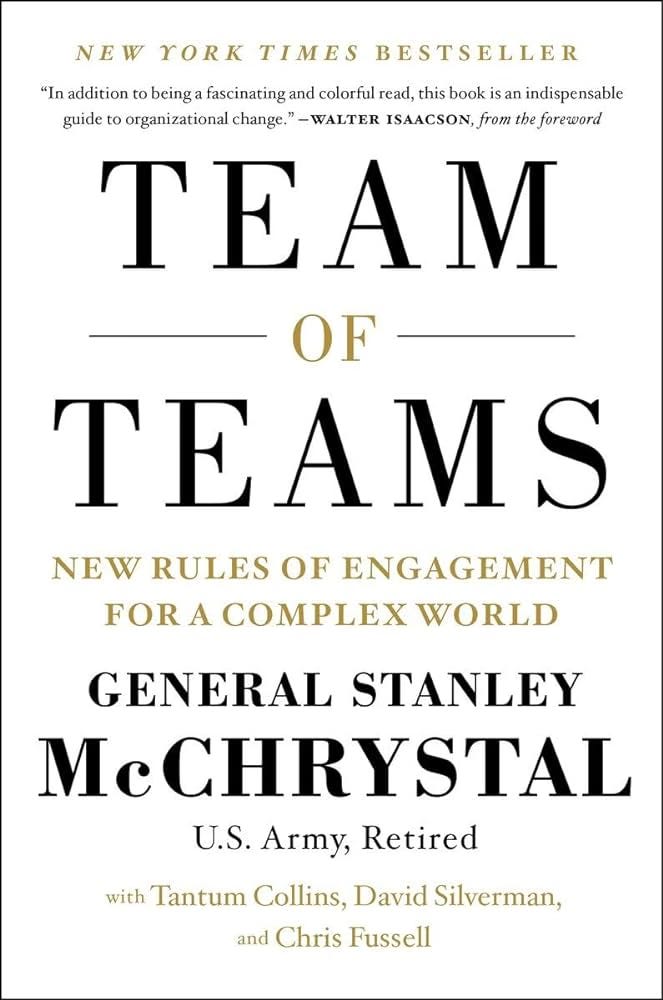the Data Scientist manager launchpad: three core skills
first in the series: foundational skills for Data Scientist managers
Our earlier post explored the twin paths of a Data Scientist's career, highlighting the crucial role of Data Scientist managers who often find themselves facing challenges that their technical training never prepared them for.
Whether you’re considering becoming a Data Scientist manager or you were thrust into the role, you may need a compass to navigate these unchartered territories.
This is the first post of a series to help Data Scientist managers gain skills that are not part of any technical curriculum. In this post, we’ll recommend books to develop three foundational competencies any Data Scientist manager must possess:
effective project management: to steer Data Products from conception to completion
financial acumen: to navigate corporate finance and master budget discussions
cross-functional coordination: to master the art of aligning teams that aren't under your direct command towards common goals.
These skills form the bedrock for successful Data Scientist managers, bridging the gap between technical expertise and leadership competence. Whether you're a seasoned Data Scientist taking your first steps into management or an experienced Data Scientist manager looking to refine your approach, this series will provide valuable insights to help you thrive in your role.
1. fortify your project management foundation
As a Data Scientist individual contributor (IC) focused on technical work, you might overlook the crucial project management happening around you. Yet, successful Data Products rely heavily on these often-unseen efforts.
Building effective Data Products requires someone to scope the project, develop timelines, allocate resources, and monitor risks. In short, every Data Product needs a project manager, whether official or unofficial.
A critical responsibility of a Data Scientist manager is project management. Whether you're directly managing projects or overseeing a dedicated Project Manager, understanding the role and its functions is essential. This knowledge will significantly enhance your ability to lead Data Product development effectively.
Kory Kogon and Suzette Blakemore’s book Project Management for the Unofficial Project Manager [updated and revised edition] (2024) offers a practical framework for those with project management responsibilities who never had project management training. The book presents actionable strategies in accessible language, enriched with real-world anecdotes and project management "proverbs". The book is valuable as a cover-to-cover read, but it will also be a resource you'll revisit for new insights.
why it matters: building Data Products successfully requires product management, and most Data Scientist managers were probably not trained to manage projects
it turns out that: effective project management results from the combination of (i) people skills to lead and engage teams, and (ii) processes to initiate, plan, execute, monitor, and close projects effectively.
who is this for: every Data Scientist manager who wants an actionable framework to manage projects
2. decode the language of finance
As a Data Scientist manager, your decisions carry budgetary implications. Whether it's hiring, acquiring new technologies, or updating equipment, you'll need to propose and justify funding. This process involves working with finance teams who use terms like EBITDA, CapEx, P&L, and ROI. Mastering this "finance speak" is crucial for your success.
While novice Data Scientist managers need a basic understanding of financial lingo, fluency becomes increasingly important as your career as a Data Scientist manager advances. It's best to start building this skill early in your career.
Karen Berman and Joe Knight’s book Financial Intelligence (2013) is tailored to help non-financial professionals understand the science and art of finance and accounting. The book uses real-world examples and case studies to explain financial terms and teach the nuance of interpreting financial numbers. It's both a comprehensive read and a valuable reference you'll return to repeatedly.
why it matters: finance is a constant occurrence in the life of a Data Scientist manager, and its importance grows with a Data Scientist manager’s seniority
it turns out that: there is science behind financial numbers, but also a subtle art to it. Understanding both is key to a successful financial training
who is this for: every Data Scientist manager, especially those with more senior responsibilities
3. be ready to lead across teams
One of the most critical skills you'll need to develop as a Data Scientist manager is coordinating teams that aren't under your direct command. In most cases, the teams you work with to build Data Products belong to different departments within a company, each with its own objectives, leadership, and hierarchies. (Think working with ML Engineers that report to IT, Data Engineers that report to the Data organization, Project Managers that report to the Analytics organization to build your Data Product) Even in smaller companies where individuals often wear multiple hats, the challenge of coordination remains.
Cross-functional coordination isn't part of typical Data Science training, but every Data Scientist manager must master it to build Data Products successfully.
Stanley McChrystal’s book Team of Teams (2015) is a fantastic resource to develop your cross-functional coordination skills. Its core method – despite its military origins – is surprisingly appropriate for a Data Science environment that requires agility, supports quick pivots, and needs to acknowledge autonomy for very smart and highly trained individuals.
The book addresses two critical skills that Data Scientist managers need to master quickly:
coordinating teams that are not under your command by decentralizing authority and fostering a common purpose that aligns diverse groups, and
creating conditions for teams to operate independently while establishing soft rules to guide when to stop and seek leadership guidance.
This approach empowers teams to work autonomously most of the time, but also instills the judgment to recognize situations that require broader perspective or decision-making. Implementing this mindset in your Data Science Shop, you’ll soon find that you’re working under a “team of teams” organization that allows you to build and maintain one (or many) Data Product(s) that remain effective throughout their lifetimes.
The books is a fantastic source to learn how to build adaptable team structures, foster transparency, empower autonomous decision-making, and create an environment where highly skilled professionals can thrive within a cohesive, goal-oriented framework. This is, hands-down, one of the books that will make you an outstanding Data Scientist manager in the long run.
why it matters: traditional hierarchical structures typically do not work well in Data Science - they tend to be too rigid - and a different approach is needed to build and maintain Data Products
it turns out that: empowering people to do what they do best with an understanding of a general objective is perfectly suited to organize Data Science work!
who is this for: every Data Scientist manager, especially those with more senior responsibilities
The three skills we've explored - project management, financial literacy, and cross-functional coordination - form the essential foundation for any Data Scientist manager. The books we've recommended offer practical insights and frameworks to help you build these skills. As you grow into your role, you'll find these skills invaluable in translating Data Science capabilities into tangible business value. Great Data Scientist managers are made, not born - and your journey starts here.
In our next post, we'll delve deeper into more advanced skills for Data Scientist managers, and will recommend some books to build those skills.
Did we spark your interest? Then also read:
the twin career paths of Data Scientists to learn about the differences in the career paths available to a Data Scientist: individual contributor (IC) or manager
WHO are the people that make Data Science possible? to learn more about the technical roles that collaborate to build Data Products in a Data Science Shop
What is Data Science? to learn more about the practical way to understand Data Science: focus on its outputs (Data Products)
What is the Data Science Shop? to learn more about the roadmap for the operation of Data Science in a business





